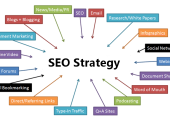In 2024, new edtech trends are emerging as the fusion of technology into the education space is creating profound transformation driven by innovation. As institutions navigate this rapidly evolving environment, understanding and embracing edtech trends are significant to maintaining a competitive edge and delivering impactful learning experiences.

Let us examine the key edtech trends for 2024 and how they can empower institutions to stay ahead of the curve. This article will delve into these trends, including personalized learning, immersive technologies, gamification, collaborative learning spaces, and data analytics. We will explore how embracing these trends can empower institutions to deliver impactful learning experiences and maintain a competitive edge in the dynamic world of education.
- Personalized Learning
In the ever-evolving industry of education technology, personalized learning has emerged as a transformative trend poised to revolutionize traditional educational approaches. As we look ahead to 2024, the integration of personalized learning technologies promises to redefine the educational experience, offering tailored learning pathways that cater to individual students’ needs, preferences, and learning styles.

Personalized learning leverages advanced algorithms, data analytics, and artificial intelligence to create customized learning experiences for students. By analyzing students’ performance, preferences, and progress in real time, these technologies provide educators with valuable insights to adapt teaching strategies accordingly. This approach transcends the one-size-fits-all model of education, allowing institutions to optimize student outcomes by addressing diverse learning needs.
One of the key benefits of personalized learning is its ability to accommodate varying learning styles. Every student has unique strengths, weaknesses, and preferences when it comes to acquiring knowledge. While some may excel in visual learning environments, others may prefer hands-on activities or auditory instructions.
Personalized learning technologies enable educators to tailor instruction methods, content delivery, and assessment techniques to suit individual learning preferences, maximizing student engagement and comprehension. Besides, by personalizing instruction, institutions can foster deeper comprehension and ultimately drive better learning outcomes. Adopting personalized learning empowers institutions to meet the diverse needs of learners in a progressively digital world.
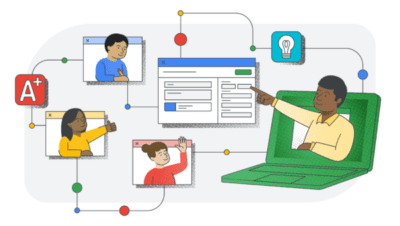
Moreover, personalized learning fosters a student-centered approach to education, empowering learners to take ownership of their learning journey. By providing access to personalized resources, adaptive learning platforms, and interactive multimedia content, students can progress at their own pace, exploring concepts in-depth or revisiting challenging topics as needed. This autonomy cultivates a sense of responsibility and self-efficacy, nurturing lifelong learning skills essential for success in the digital age.
There is also the dynamic of edtech trends where personalized learning technologies facilitate data-driven decision-making in education. By collecting and analyzing vast amounts of student data, educators can identify patterns, trends, and areas for improvement more effectively.
This actionable intelligence enables institutions to implement targeted interventions, personalized remediation plans, and differentiated instruction strategies, ultimately enhancing student achievement and retention rates.
From the above perspectives, personalized learning stands as a groundbreaking edtech trend to watch out for in 2024 and beyond. By embracing personalized learning technologies, educational institutions can transcend traditional teaching paradigms, accommodate diverse learning styles, and optimize student outcomes.
As we continue to harness the power of technology in education, personalized learning holds the promise of creating more inclusive, adaptive, and effective learning environments for all students.
- Immersive Technologies
Immersive technologies, including virtual reality (VR) and augmented reality (AR), are revolutionizing the way students learn and interact with educational content. In 2024, these technologies have transcended novelty to become integral tools for experiential learning.
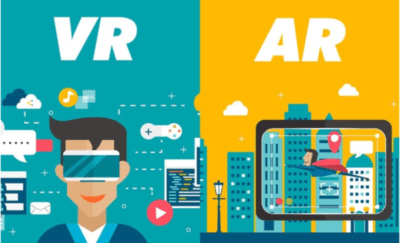
One of the key impacts of VR and AR in the education sector lies in their ability to create immersive and interactive learning environments. With VR, students can transcend the limitations of traditional classrooms and embark on virtual field trips to historical sites, distant planets, or even microscopic realms, providing them with firsthand experiences that were once confined to textbooks.
Similarly, AR overlays digital content onto the real world, allowing students to visualize complex concepts in subjects like biology, physics, and chemistry with greater clarity and depth.
Immersive technologies have also proven to enhance student engagement and retention. By appealing to multiple senses and catering to different learning styles, VR and AR experiences stimulate curiosity and encourage active participation, making learning more enjoyable and impactful. Students are more likely to retain information when they are fully immersed in the learning process, leading to deeper understanding and long-term knowledge retention.
Key Takeaway: Integrating VR and AR technologies into education enhances experiential learning and fosters creativity, retention and engagement among students.
- Gamification
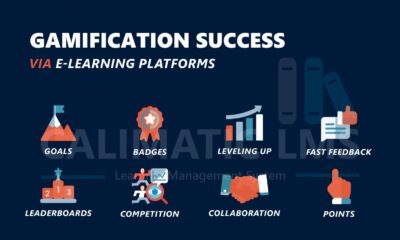
Gamification continues to gain momentum as a powerful tool for enhancing student motivation and engagement in 2024. By applying game elements such as points, badges, and leaderboards to educational activities, educators can transform learning into a captivating and immersive experience.
Gamified platforms incentivize participation, encourage healthy competition, and provide instant feedback, driving sustained student interest and investment in their learning journey. Embracing gamification strategies empowers institutions to create dynamic and interactive learning environments that inspire students to achieve their full potential.
Key Takeaway: Incorporating gamification into education promotes student motivation, engagement, and active participation, leading to improved learning outcomes. However, before you start designing your gamified learning experience, you need to set clear learning objectives and goals. These objectives should be aligned with your learners’ needs and your organization’s learning outcomes.
4. Collaborative Learning Spaces
Collaborative learning spaces have emerged as a cornerstone of modern education, facilitating teamwork, communication, and peer-to-peer learning. In 2024, digital collaboration tools enable seamless collaboration and knowledge sharing among students, regardless of their physical location.

These platforms empower students to collaborate on projects, exchange ideas, and engage in meaningful discussions, fostering a sense of community and collective learning. By embracing collaborative learning spaces, institutions can cultivate essential 21st-century skills such as collaboration, communication, and problem-solving, preparing students for success in an interconnected world.
At the heart of collaborative learning spaces lies the recognition that learning is a social process. By creating physical or virtual environments conducive to collaboration, educators empower students to exchange ideas, solve problems collectively, and construct deeper understandings of concepts. Through group projects, discussions, and interactive activities facilitated by technology platforms, students develop crucial interpersonal skills vital for success in the modern world.
One of the primary benefits of collaborative learning spaces is the ability to nurture teamwork. By working collaboratively, students learn to appreciate diverse perspectives, delegate tasks, and leverage each other’s strengths. This cooperative approach mirrors real-world scenarios, preparing students for collaborative endeavours in their future careers.
Moreover, collaborative learning spaces enhance communication skills as students articulate their thoughts, listen actively to their peers, and convey complex ideas effectively. Through constant interaction, students learn to communicate across various mediums, including text, audio, and visuals, preparing them for the multifaceted communication demands of the digital age.

Additionally, collaborative learning spaces promote critical thinking by encouraging students to analyze information critically, evaluate arguments, and propose innovative solutions collaboratively. By engaging in discussions and debates within a supportive environment, students refine their analytical abilities and become adept at synthesizing diverse viewpoints.
Key Takeaway: Collaborative learning spaces represent pivotal edtech trends in 2024, emphasizing the importance of social learning and skill development in education. Creating collaborative learning spaces nurtures teamwork, communication, and critical thinking skills essential for students’ future success that equip students with the competencies necessary to thrive in an increasingly interconnected and complex world.
5. Data Analytics
Data analytics plays a pivotal role in driving informed decision-making and optimizing learning outcomes in 2024. Data analytics, simply put, involves gathering, processing, and examining data related to students and their academic achievements to enhance learning outcomes and learning environments. By leveraging data analytics tools and algorithms, educators can gain valuable insights into student performance, behaviour, and learning patterns.
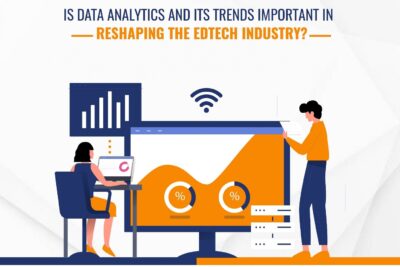
Predictive analytics enables early identification of at-risk students and personalized interventions to support their academic journey. Moreover, data-driven insights inform curriculum development, instructional design, and strategic planning, leading to continuous improvement across the educational ecosystem. Harnessing the power of data analytics empowers institutions to deliver personalized, data-informed learning experiences that meet the evolving needs of students.
Additionally, AI can forecast students’ future performance based on their current learning behaviours, offering suggestions for improvement where needed. Consider a scenario where a group of students in a language class consistently performs poorly in grammar exercises. Through learning analytics, AI can identify this pattern and suggest targeted interventions. For instance, it may recommend additional grammar drills or interactive exercises tailored to reinforce specific grammar rules.
Key Takeaway: Utilizing data analytics enables institutions to make informed decisions, personalize learning experiences, and drive continuous improvement in education.
- Artificial Intelligence
At the forefront of educational technology, Artificial Intelligence (AI) is bringing a revolution in how both students and educators engage with learning. AI’s impact extends far beyond a mere trend, offering dynamic solutions that transform the educational landscape.
Central to its influence is the personalization of learning experiences, where AI-powered platforms deliver tailored content aligned with each student’s unique needs and learning preferences. This individualized approach not only deepens student engagement but also enhances comprehension, paving the way for a more effective educational journey.
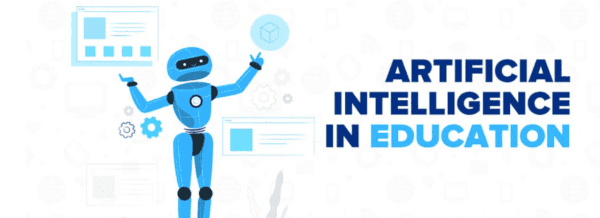
Additionally, AI brings virtual teaching assistants into the classroom, offering students immediate and personalized support, guidance, and feedback. These assistants, driven by sophisticated algorithms, adapt seamlessly to student queries and progress, complementing traditional teaching methods.
Furthermore, AI-powered automated grading systems streamline administrative tasks for educators, affording them more time to cultivate meaningful interactions with their students. In this way, AI’s integration into educational settings promises a paradigm shift towards a more personalized, efficient, and enriching learning experience.
Key takeaway: Artificial Intelligence (AI) in education enables personalized learning experiences tailored to individual student needs and learning styles. With AI-driven virtual assistants and automated grading systems, educators can enhance engagement, comprehension, and support for student progress, ultimately revolutionizing teaching and learning.
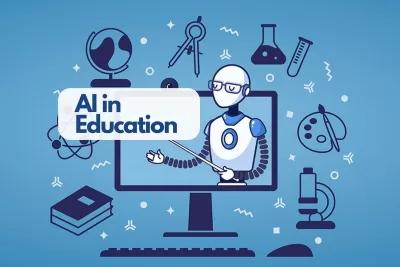
In conclusion, the edtech trends for 2024 herald a new era of innovation and transformation in education. The edtech sector is driving a profound shift in education, characterized by innovative trends poised to redefine learning experiences.
Institutions are increasingly welcoming personalized learning, leveraging technology to tailor educational content and methodologies to individual student needs. Immersive technologies, such as virtual and augmented reality, are revolutionizing the classroom, offering dynamic and interactive learning environments that engage students in new ways.
Gamification, another emerging trend, introduces game elements into educational activities, making learning more enjoyable and motivating. Collaborative learning spaces foster teamwork and communication skills, preparing students for collaborative work environments in their future careers.
Data analytics play a crucial role in monitoring student progress, identifying areas for improvement, and informing instructional strategies to enhance learning outcomes. These trends collectively empower institutions to stay ahead of the curve, delivering impactful educational experiences that equip students with the skills and competencies needed to thrive in a continuously more digital and interconnected world.





